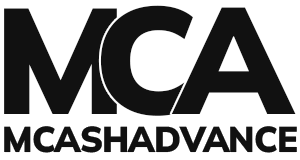
When you submit your MCA application, it goes through a merchant cash advance underwriting evaluation process. This underwriting will determine if the MCA provider can approve your application and at what factor rate, they will charge you to provide the lump sum cash advance.
Knowing what an underwriter does and checks for during the evaluation process will increase your chances of securing an MCA.
In this article, we will cover everything you need to know about MCA underwriting to help make this part of your MCA application go smoothly.
The Role of an MCA Underwriter in Your MCA Application
MCA underwriters are professionals with specialized training in underwriting business loans, including MCAs. Their primary responsibility is to evaluate your MCA application to determine if it meets the eligibility criteria set by the MCA providers they work for. Underwriters play a pivotal role in the MCA underwriting process by thoroughly reviewing your application. Their main objective is to assess the level of risk associated with granting you the cash advance and to determine the factor rate, which represents the fee they are willing to charge for providing the advance.

Key Metrics Evaluated by Underwriters in Your MCA Application
When you submit your MCA application, it goes through an initial screening process that uses specific criteria to ensure you meet the minimum requirements set by the MCA provider before they consider offering you an MCA. This initial stage is referred to as pre-approval. Following pre-approval, your application is then forwarded to the underwriter for evaluation and final-approval.
Here are the criteria an underwriter will evaluate when reviewing your application:
Monthly Credit Card Sales
When evaluating your application, the underwriter will closely examine the monthly volume of your credit card sales, which your business processes. They check your merchant credit card processor, financial statements, and bank account data to gain a historical view of your credit card data. Higher monthly credit card sales can make your application more appealing to the underwriter since there is historical proof of sufficient credit card sales to cover daily MCA repayments.
Annual and Monthly Revenue
Not all your business revenue will be processed through credit card transactions, so the underwriter will examine your overall revenue to understand the total annual revenue your business generates. This metric is used to calculate how much it should consider advancing your business, typically ranging from 10% to 25% of your annual revenue.
Debt-to-Income Ratio (DTI)
The underwriter will also calculate your DTI, which compares your monthly debt obligations to your monthly revenue. Most underwriters are looking for your DTI to be below the industry standard of 36 percent, as a lower debt-to-income ratio demonstrates your businesses ability to handle additional debt an MCA would.
Calculating Debt-to-Asset Ratio
If you were asked for details about your business assets like cash, inventory, equipment, and real estate during your application, the underwriter might use this information to calculate your debt-to-asset ratio. This ratio is the balance between the portion of your business owned by creditors, those you’ve borrowed money from, and what is owned by the business. Many MCA providers typically find a debt-to-asset ratio ranging between 30% and 60% to be within their comfort zone as part of their cash advance criteria.
Underwriter then Assigns a Paper Grade
Next, the underwriter assesses your creditworthiness and financial history by looking at your business credit score (if available) and your personal credit score. They use these factors to assign a rating to your business known as paper grades, which are labeled A, B, C, or D. These paper grades determine your business’s risk level and chance of approval, as well as the MCA terms you will receive and the expenses for the cash advance. The better the paper grade, the higher your chances of approval and the better rates you may secure for your MCA.
Let’s delve into each paper grade that the underwriter might assign to your business and your application:
Paper Grade A (Best Quality)
If the underwriter gives you a paper grade of A, it means your business exhibits the highest creditworthiness and the lowest risk profile. To achieve this rating your business will need a FICO score of 650 or higher, an excellent business credit profile, clean bank statements, no liens, no landlord or mortgage issues, and a low debt-to-income ratio. With a paper grade of A, you can expect a high likelihood your application will be approved, and you will and you will get the most favorable rates that the MCA provider has to offer.
Paper Grade B
If an underwriter gives your business a paper grade of B, it means your credit is reasonable but not perfect. Imperfections may include non-sufficient funds (NSFs), overdrafts, or some issues. To qualify for Grade B, your FICO score should ideally be in the range of 600 to 640, with occasional NSF occurrences allowed. If your business is assigned a B grade there is still a high likelihood your MCA will be approved and you will receive the standard rate that the MCA provider has to offer.
Paper Grade C
If an underwriter assigns your business a paper grade of C, it means they consider it a high-risk business. This is usually because your business has a high debt-to-income ratio, often resulting in a credit score below 600. However, if your business consistently has a high monthly volume of credit card sales, there’s still a good chance of approval. Underwriters often prioritize credit card sales over credit scores in such cases, but you can expect the MCA provider to charge a much higher factor rate fee to provide the advance.
Grade D (Worst Quality)
If your business is given a paper grade of D by the underwriter, it’s the lowest quality grade possible. This signifies the highest level of risk and the poorest credit quality, usually below 550. If your business falls into this category, approval becomes much less likely unless you consistently maintain high credit card sales. However, even if you do get approved, you’ll face unfavorable rates and fees.
Red Flags to Underwriters
During the MCA underwriting process, certain undisclosed factors may come to light. These factors, which you might not have disclosed in your application or may not have been explicitly requested, but which the underwriter can access as a matter of public record, have the potential to raise concerns and impact your MCA application.
These factors could include:
- Past Bankruptcies: If you have experienced past bankruptcies, they may indicate financial struggles, potentially leading to less favorable terms or even application denial.
- Unpaid Judgments: Outstanding judgments on your record can suggest financial instability, which may result in less favorable rates or challenges in getting approval.
- Major Revenue Drops: Significant declines in your income could be seen as a risk, possibly leading to higher rates or closer scrutiny of your application.
- Criminal Background: If you have a criminal record, especially involving financial crimes, it could hinder your MCA approval due to concerns about financial misconduct.
- Ongoing Evictions or Late Rent Payments: These issues may signal financial stress and could result in increased scrutiny or less favorable terms if your application is approved.
Any of these red flags will make it difficult for you to secure an MCA, and if you do, you will be charged a high factor rate to offset the MCA provider’s risk of giving you the cash advance.
Ready to Apply?
or learn more about MCA funding
The Bottom Line
Understanding the MCA underwriting process enhances your chances of getting approved. Providing all requirements during the application simplifies the underwriter’s review because they have everything they need. If you or your business are experiencing any financial problems or red flags, it’s best to disclose them upfront with an explanation during the application process, which demonstrates transparency to the underwriter. Understanding the paper grade the underwriter assigned to your business will help you gauge how risky the MCA provider views your application and may enable you to try to negotiate better factor rates.

